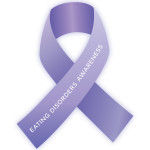 A “health consequence” is a general term for the many negative physical and mental health changes that can result from disordered eating. Some of the dangers may be specific to anorexia nervosa (AN), avoidant/restrictive food intake disorder (ARFID), bulimia nervosa (BN), or binge eating disorder (BED), while other health problems can be associated with more than one type of eating disorder.
A “health consequence” is a general term for the many negative physical and mental health changes that can result from disordered eating. Some of the dangers may be specific to anorexia nervosa (AN), avoidant/restrictive food intake disorder (ARFID), bulimia nervosa (BN), or binge eating disorder (BED), while other health problems can be associated with more than one type of eating disorder.
If food restriction is involved, the body is unable to get the nutrients it needs to function properly. In an attempt to conserve energy, the body’s natural response is to slow down. Typical symptoms such as a significant decrease in the heart rate (pulse) and blood pressure are a direct result of this process, and bone density can be compromised, which weakens bones and can increase risk for stress fractures and future osteoporosis/osteopenia.
Purging behaviors upset the body’s normal chemical balance. This causes dangerous changes to the levels of electrolytes and subsequently can affect major body organs including the heart. The major risks associated with binge eating may include high blood pressure, high blood cholesterol, heart disease, and diabetes.
The following is an overview of the systems and organs that are affected by eating disorder behaviors. Unless specifically noted, these symptoms may affect anyone with disordered eating. You will note in parenthesis that some of the symptoms and health consequences may be more common in AN, ARFID, BN, or BED.
General
- Marked weight changes
- Weakness/fatigue
- Dehydration
- Abnormal electrolytes (AN, BN)
- Poor concentration, irritability
Skin, hair, and teeth
- Dry skin (AN, ARFID, BN)
- Brittle nails (AN, ARFID, BN)
- Hair loss (AN, ARFID, BN)
- Fine downy hair growth (lanugo) (AN, ARFID)
- Cold intolerance (AN, ARFID)
- Tooth decay (BN)
Psychosocial
- Depression
- Anxiety
- Low self-esteem
- Over valuation of weight/shape
- Shame or guilt
- Withdrawal from friends/activities
Endocrine
- Delayed growth, short stature, delayed puberty, low hormone levels (AN, ARFID)
- Abnormal thyroid levels (sick euthyroid)
- Increased risk for insulin resistance, which can lead to Type 2 diabetes (BED)
- Loss of libido (AN)
Cardiovascular
- Low pulse (AN, ARFID, BN)
- Dizziness (AN, ARFID, BN)
- Low blood pressure (AN, ARFID, BN)
- High blood pressure (BN, BED)
- Arrhythmia/irregular heartbeat (AN, ARFID, BN)
Gastroesophageal
- Abdominal pain/bloating
- Constipation
- Reflux
Musculoskeletal
- Low bone density, osteopenia, osteoporosis (AN ARFID,)
- Stress fractures (AN, ARFID, BN)
- Decreased muscle mass (AN, ARFID)
 Young Men's Health
Young Men's Health